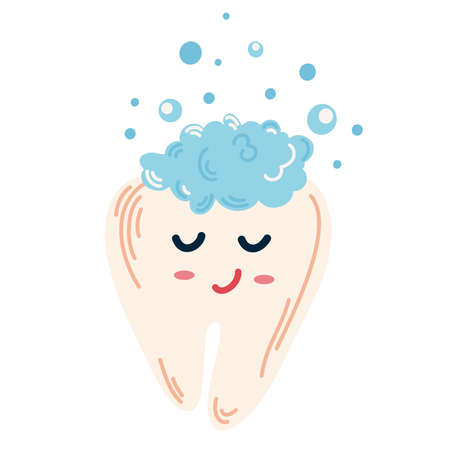The Importance of Quality Sleep
In the heart of British living, where daily routines dance between work, social commitments, and treasured personal time, quality sleep stands as a cornerstone for both physical and mental wellbeing. The NHS and leading UK health experts consistently highlight restful sleep as fundamental to a balanced lifestyle, supporting everything from cognitive clarity to emotional resilience. Far more than simply a nightly pause, restorative sleep helps regulate mood, bolster immunity, and even maintain a healthy weight. Without it, we can quickly feel out of sorts—irritable, forgetful, or unable to fully embrace the rhythms of everyday life. Prioritising good sleep is not just about feeling rested; it is about nurturing the mind and body so we can flourish in all aspects of our lives. In today’s fast-paced society, creating mindful evening rituals becomes an essential act of self-care—one that supports energy levels, focus, and overall happiness in our uniquely British context.
2. Creating a Cosy Sleep Environment
Transforming your bedroom into a sanctuary of calm is an essential step towards quality sleep, and there’s much to be inspired by in classic British comfort. A restful environment soothes the senses and signals to your mind that it’s time to unwind. Here are some practical tips for turning your bedroom into a calming haven:
Soft Lighting for Serenity
British evenings often evoke images of warm lamplight glowing softly through windowpanes. Opt for gentle, ambient lighting rather than harsh overhead lights. Consider bedside lamps with warm-toned bulbs or fairy lights draped around the room for a subtle glow. Dimming the lights an hour before bedtime helps cue your body for rest.
Comfortable Bedding: The Heart of British Cosiness
The UK is known for its love of plush duvets, fluffy pillows, and high-quality linens. Invest in bedding that feels inviting and luxurious. Choose natural fabrics like cotton or linen, which are breathable and soft against the skin. Layering throws or knitted blankets at the foot of your bed adds both warmth and a touch of quintessential British charm.
Perfect Temperature: Neither Too Hot Nor Too Cold
A comfortable temperature is crucial for uninterrupted sleep. In Britain’s varied climate, finding the right balance is key—too warm and you’ll toss and turn; too chilly and you may struggle to relax. Aim for a bedroom temperature between 16°C and 18°C (60°F–65°F) for optimal comfort.
Quick Reference Guide: Your Cosy Sleep Checklist
| Element | British-Inspired Tip |
|---|---|
| Lighting | Use soft lamps or fairy lights, avoid bright ceiling lights |
| Bedding | Opt for plush duvets, natural fabrics, extra throws |
| Temperature | Maintain 16–18°C, use a hot water bottle or light blanket if needed |
| Scent | Add calming scents like lavender with diffusers or pillow sprays |
| Tidiness | Keep the space clutter-free to foster peace of mind |
Embrace British Comfort Rituals
The small details—a freshly made bed, a cup of herbal tea before lights out, or the gentle hum of rain outside—can make all the difference. By thoughtfully curating your bedroom environment with these classic touches, you pave the way for restorative sleep night after night.

3. Winding Down: Evening Rituals to Unwind
As the day draws to a close, embracing gentle evening rituals can help signal to your mind and body that it’s time to let go of the day’s stresses. In the UK, where the weather often invites us indoors, creating a cosy and calming atmosphere is part of our cherished evening routine. Consider brewing a soothing cup of herbal night-time tea—chamomile or valerian are popular British favourites known for their calming properties. Sipping something warm as you settle into your favourite armchair can be a comforting transition from the busy day. Another cherished ritual is drawing a warm bath, perhaps with Epsom salts or a few drops of lavender oil. The combination of warmth and calming scents helps ease muscle tension and quieten a racing mind. For many, this is the perfect time to unplug from screens and technology, allowing space for true relaxation. If you’re looking for a screen-free way to unwind, pick up a good book—preferably something light or uplifting—and allow yourself to drift away in its pages. Soft lighting, such as fairy lights or a bedside lamp with a warm bulb, can further enhance the tranquil mood. These simple yet effective habits form the backbone of an evening wind-down routine, gradually preparing both body and mind for restorative sleep.
4. Digital Detox Before Bed
In our always-connected world, screens can easily creep into our evening routines, quietly sabotaging our sleep quality. The blue light from devices suppresses melatonin production, making it harder to fall asleep and achieve restorative rest. Embracing a digital detox before bed is a mindful step towards better sleep, and there are quintessentially British ways to wind down without your mobile or tablet.
Why Digital Detox Matters for Sleep
Limiting screen time in the hour before bedtime helps signal to your brain that it’s time to relax. This encourages a smoother transition from the hustle of daily life to a restful night’s sleep. Instead of scrolling through social media or binge-watching late-night TV, consider these gentle alternatives favoured across the UK:
| Digital Distraction | British-Inspired Alternative |
|---|---|
| Endless social media scrolling | Listen to BBC Radio 4’s late-night programmes |
| Watching TV shows in bed | Read a chapter of a classic novel or poetry |
| Late-night emails and news alerts | Guided meditation with a soothing British accent |
| Gaming on your phone or tablet | Sip herbal tea while journaling or reflecting on the day |
Simple Steps for Your Evening Digital Detox
- Set a device curfew: Aim to switch off all screens at least an hour before you plan to sleep.
- Create a charging station outside the bedroom: Keep gadgets out of arm’s reach overnight.
- Tune in to relaxing audio: Try a bit of late-night radio—perhaps the Shipping Forecast or classical music on BBC Radio 3—to help ease your mind.
- Explore guided meditations: Apps like Headspace offer short, calming sessions voiced by Brits—perfect for unwinding after a busy day.
- Embrace analogue comforts: A good book, a warm bath, or simply jotting down tomorrow’s to-do list can work wonders.
The Takeaway: Make It Your Own Ritual
A digital detox doesn’t need to feel like deprivation. By swapping screens for soothing British traditions and mindful practices, you create an evening ritual that supports both relaxation and high-quality sleep. Experiment with what feels right for you and notice how these small changes can make your nights more restorative and your mornings brighter.
5. Mindful Practices for Restful Nights
As the day draws to a close, embracing mindful practices can make all the difference between tossing and turning or drifting off into peaceful slumber. In the UK, where daily life can be bustling and at times overwhelming, establishing an evening routine that soothes both body and mind is essential for quality sleep. Gentle activities such as light stretching, deep-breathing exercises, or jotting down thoughts in a journal can help calm the nervous system and signal to your brain that it’s time to unwind.
Light Stretching to Release Tension
Engaging in gentle stretches before bed helps release built-up tension from a long day—think of it as giving your muscles a well-deserved treat. Focus on simple movements like neck rolls, shoulder shrugs, or a gentle forward fold. These actions not only loosen tight spots but also encourage relaxation, setting the stage for restful sleep.
Deep-Breathing: A Calming Ritual
Deep-breathing exercises are a cornerstone of mindful bedtime routines across Britain. Try the 4-7-8 technique: inhale through your nose for four counts, hold your breath for seven, then exhale slowly for eight. This method helps slow your heart rate and quieten racing thoughts—a perfect antidote to modern-day stresses.
Journaling for Clarity and Calm
If your mind tends to race with tomorrow’s to-dos, journaling can be a powerful tool. Take five minutes each night to jot down any lingering thoughts or worries. Alternatively, note three things you’re grateful for from the day—a classic British approach to nurturing positivity and mental wellbeing. This practice clears your mind and allows you to drift off with a sense of closure and contentment.
Creating Your Personal Wind-Down Routine
No two evenings are quite the same, so experiment with these mindful practices until you find what suits you best. Whether you prefer stretching out on a yoga mat, practising slow breathing in bed, or reflecting quietly in a notebook by lamplight, integrating these calming habits into your nightly ritual will pave the way for truly restorative sleep.
6. Sleep-Friendly Evening Nutrition
As dusk settles and you begin to wind down, what you choose to eat and drink in the evening can make all the difference to your quality of sleep. Embracing British-inspired evening snacks and drinks, you can nurture both body and mind, setting the stage for a restful night.
The Art of Light Snacking
It’s best to keep evening snacks light and gentle on the digestive system. Opt for something that won’t leave you feeling too full or unsettled as bedtime approaches. A couple of oat biscuits—a classic British choice—are perfect for this purpose. Oats are naturally high in melatonin, the hormone that regulates sleep, while their wholesome fibre content supports steady blood sugar levels throughout the night.
Soothing Sips for Serenity
A warm drink before bed is a cherished ritual across Britain. For restful sleep, swap caffeinated teas for a calming herbal alternative. A cup of chamomile tea is renowned for its ability to soothe nerves and promote relaxation, making it an ideal evening brew. Alternatively, try a warm mug of malted milk or a caffeine-free rooibos blend if you fancy a little variety.
Smart Choices: What to Avoid
Steer clear of rich, spicy foods or anything heavy with refined sugars late in the evening, as these can disrupt digestion and hinder deep rest. Similarly, moderate your intake of alcohol; while it may help you nod off initially, it often leads to poorer sleep quality through the night.
Tip: Create Your Own Ritual
To truly make your evening nutrition part of your wind-down routine, prepare your snack and drink mindfully. Lay out your favourite mug or teacup, savour each bite or sip slowly, and allow yourself a few quiet moments before heading to bed. This small act can signal to your body that it’s time to unwind and restore.
7. Addressing Common Sleep Challenges
While establishing evening rituals can greatly enhance your quality of sleep, it’s also important to recognise and address the unique challenges that may arise in the British context. From bustling city streets to unpredictable weather patterns, there are several disruptors that can hinder a restful night. Below, you’ll find practical suggestions for overcoming these typical British sleep challenges, along with guidance on when to seek professional support.
Noisy Environments
Whether you live near a busy road, under a flight path, or in a lively neighbourhood, noise pollution can be a persistent problem. Consider investing in good-quality earplugs or noise-cancelling headphones, and try using white noise machines or calming soundtracks to mask disruptive sounds. Heavy curtains or double glazing can also dampen street noise and create a cosier sleeping environment.
Unpredictable Weather
British weather is famously changeable, with sudden downpours or heatwaves making it difficult to maintain an ideal sleep temperature. Opt for layered bedding so you can easily adjust according to the temperature. Breathable cotton sheets work well year-round, while blackout blinds help keep early morning light at bay during summer months. In winter, consider using a hot water bottle or an electric blanket set on a timer for gentle warmth as you drift off.
Managing Light Pollution
City living often means dealing with bright streetlights or illuminated signage outside your window. Blackout curtains or sleep masks are effective solutions that can make a significant difference in blocking unwanted light and signalling to your body that it’s time for rest.
When to Seek Professional Help
If you consistently struggle with falling asleep, staying asleep, or experience frequent fatigue despite implementing positive routines, it may be time to consult your GP or a sleep specialist. Persistent issues could point to underlying conditions such as insomnia, sleep apnoea, or anxiety. Don’t hesitate to reach out—professional support is available through the NHS and various private clinics across the UK.
Small Changes, Lasting Impact
Adapting your evening rituals to suit your personal circumstances and local environment can transform your nightly routine from restless to restorative. By addressing common British sleep disruptors and seeking help when needed, you’re well on your way to experiencing truly restorative nights and brighter days ahead.

